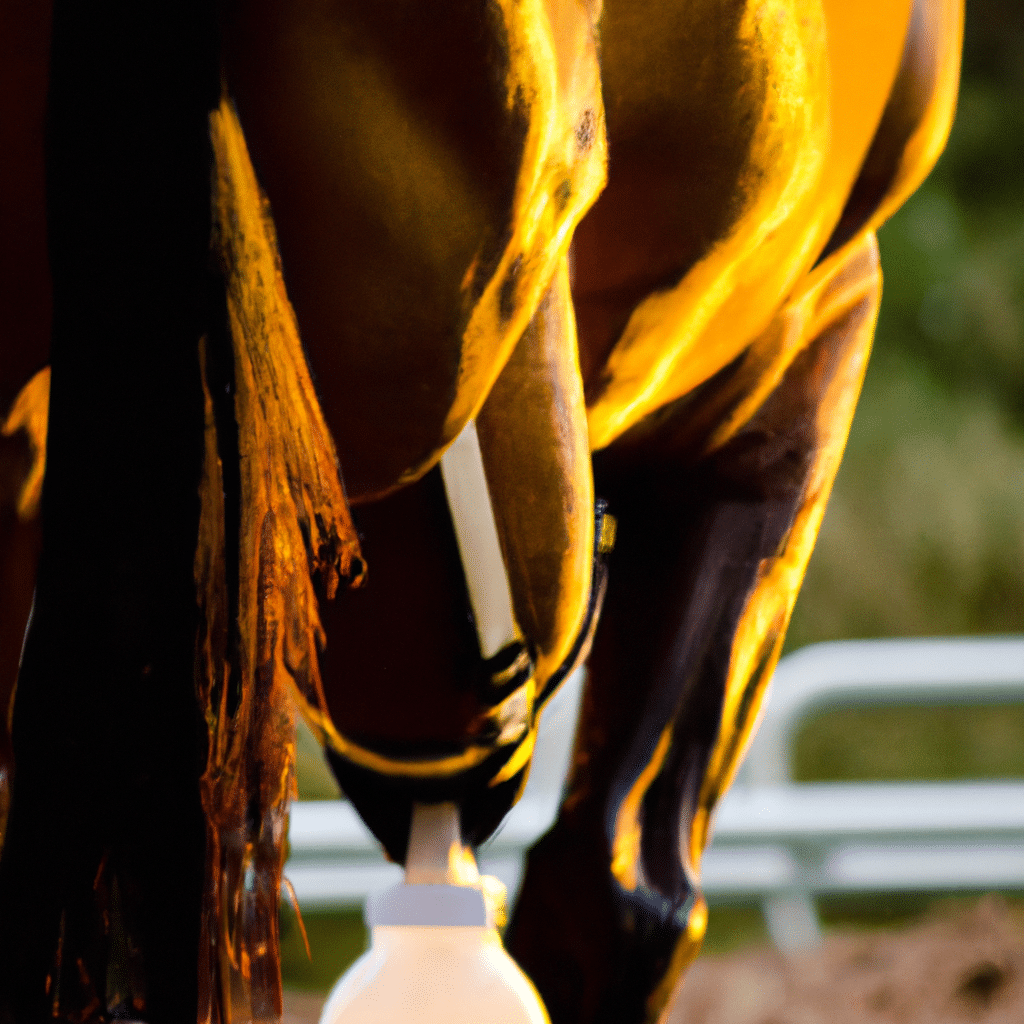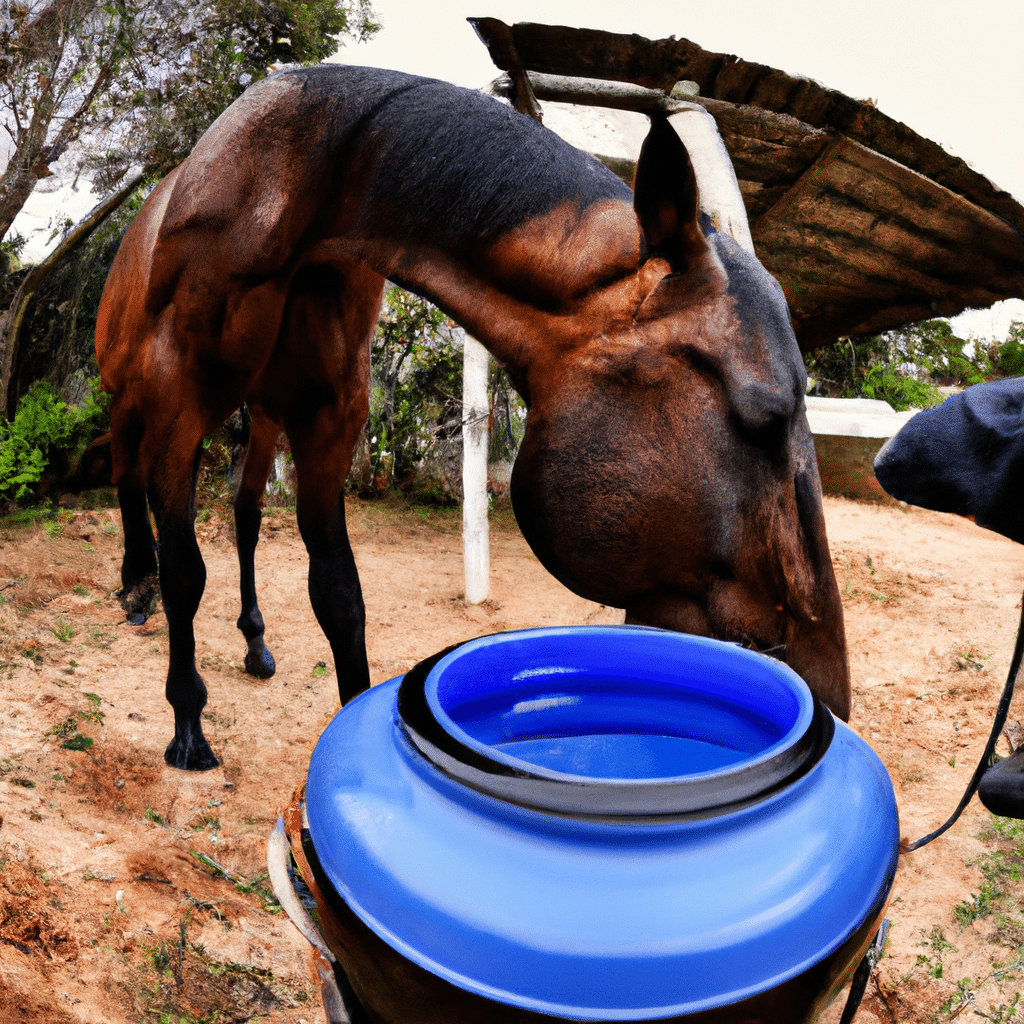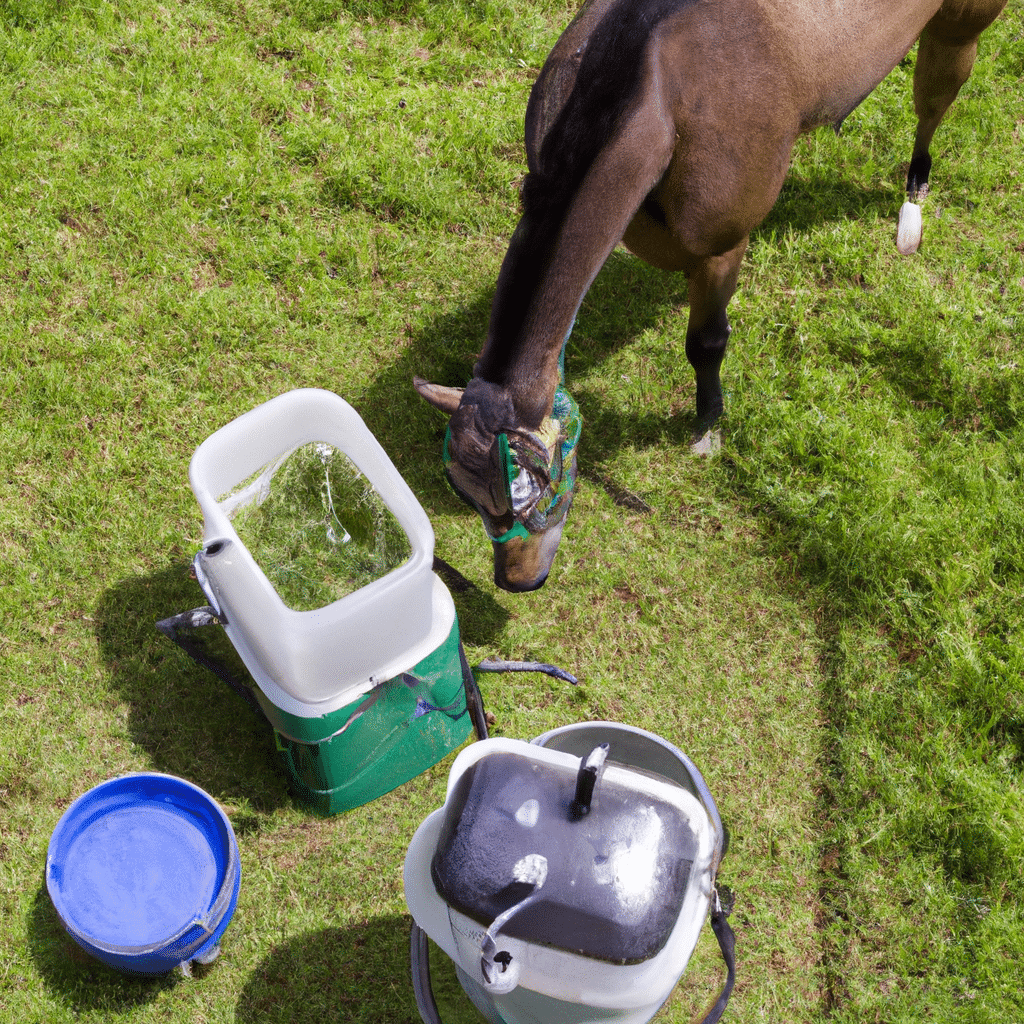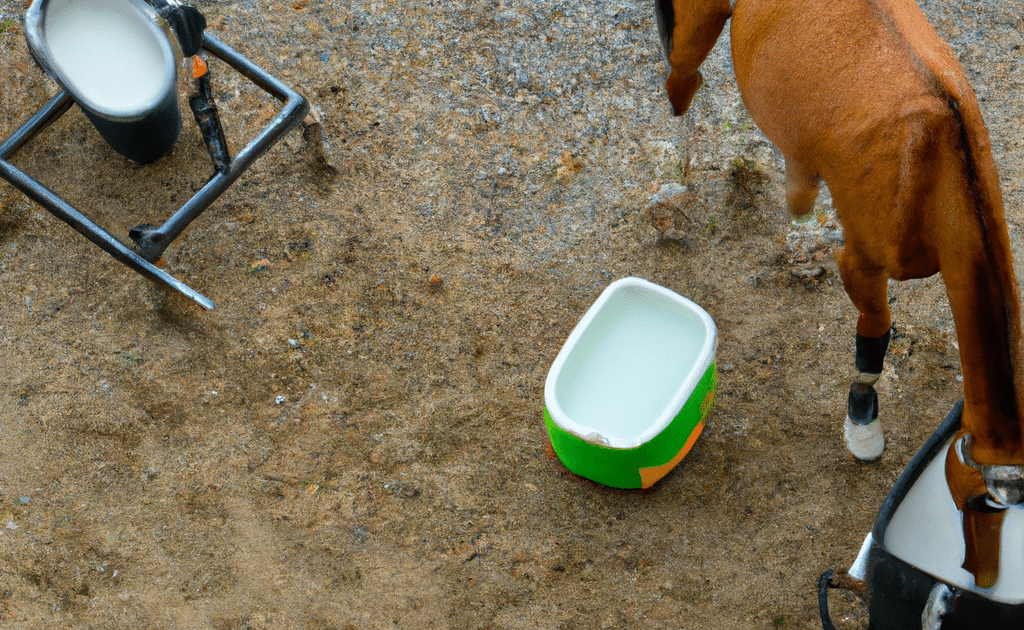Endurance horse racing is a demanding sport that tests the physical and mental capabilities of both horse and rider.
To excel in this grueling discipline, horses must be in peak condition, and proper hydration plays a crucial role in their performance and overall well-being.
In this article, we will explore effective hydration strategies for endurance horses, ensuring they stay hydrated, healthy, and ready to conquer the challenges of long-distance races.
From understanding the importance of hydration to implementing practical techniques, we will cover everything you need to know to optimize your equine athlete’s hydration levels.
So, saddle up and let’s dive into the world of hydration strategies for endurance horses!
Understanding the Importance of Hydration
Before we delve into the various hydration strategies, it is essential to understand why proper hydration is crucial for endurance horses. Hydration plays a vital role in maintaining the overall health and performance of these magnificent creatures.
Dehydration can have severe consequences for horses, leading to decreased performance, muscle fatigue, and even life-threatening conditions. During endurance races, horses lose significant amounts of fluid through sweating and respiration. If not replenished adequately, this fluid loss can result in dehydration.
Dehydration negatively impacts a horse’s cardiovascular system, hindering its ability to transport oxygen and nutrients to the muscles. This can lead to fatigue and a decline in performance. Moreover, dehydration affects the horse’s thermoregulation, making it more susceptible to heat stress and related complications.
To prevent these issues and ensure optimal performance, it is essential to prioritize hydration as a fundamental aspect of your endurance horse’s training and care routine.
Water, the Ultimate Hydration Source
When it comes to hydrating endurance horses, water is the ultimate source. Just like humans, horses rely on water to maintain their bodily functions and regulate their body temperature.
Providing access to clean, fresh water at all times is crucial. Horses should have constant access to water, whether they are in their stalls, turned out in pastures, or during training sessions. Water buckets or automatic waterers should be regularly checked and cleaned to ensure the water remains palatable and free from contaminants.
It is important to note that horses have individual preferences when it comes to water temperature. Some horses prefer cooler water, while others may prefer it slightly warmer. Monitoring your horse’s preferences and adjusting the water temperature accordingly can encourage them to drink more.
In addition to providing ample water, it is equally important to monitor your horse’s water intake. A well-hydrated horse will typically consume around 5 to 10 gallons of water per day. Monitoring their water consumption can help you identify any changes in their hydration levels and address them promptly.
Electrolytes: The Key to Replenishing Lost Minerals
During intense exercise or prolonged endurance races, horses not only lose water but also essential electrolytes through sweat. Electrolytes are minerals that play a crucial role in maintaining the balance of fluids in the body and facilitating muscle function.
Supplementing your horse’s water with electrolytes can help replenish the minerals lost during exertion. Electrolyte supplements are available in various forms, including powders, pastes, and liquids. These supplements are typically mixed with water or added to the horse’s feed.
It is important to follow the manufacturer’s guidelines when administering electrolytes to your horse. Over-supplementation can be harmful, so it is crucial to consult with your veterinarian to determine the appropriate dosage for your horse’s specific needs.
Electrolyte supplementation is particularly important during hot and humid conditions when horses are more prone to excessive sweating. By replenishing the lost electrolytes, you can help your horse maintain optimal hydration levels and prevent muscle cramps and fatigue.

Timing is Everything: Hydration Before, During, and After Exercise
Proper timing of hydration is crucial to ensure your endurance horse stays adequately hydrated throughout their training and racing endeavors.
Before exercise: It is essential to start hydrating your horse well before the start of any physical activity. Providing water at least 30 minutes before exercise allows the horse to drink and absorb the water properly. This pre-hydration helps prevent dehydration during the workout.
During exercise: Hydration during exercise is equally important. Endurance horses should have access to water during breaks or checkpoints along the racecourse. Offering small sips of water at regular intervals can help maintain hydration levels without causing discomfort or digestive issues. Some riders also use hydration systems that allow horses to drink while on the move, ensuring continuous hydration.
After exercise: Replenishing fluids and electrolytes after exercise is crucial for proper recovery. Offer water to your horse immediately after exercise to encourage rehydration. Additionally, providing electrolyte supplements or a balanced electrolyte solution can aid in replenishing the lost minerals and restoring the horse’s electrolyte balance.
Monitoring Hydration Levels: Signs of Dehydration in Horses
Monitoring your horse’s hydration levels is essential to ensure they are adequately hydrated during training and races. While it is best to consult with a veterinarian for a comprehensive assessment, there are several signs you can observe to gauge your horse’s hydration status:
1. Capillary refill time: Press your finger against your horse’s gum and release. The gum should return to its normal pink color within 2 seconds. If it takes longer, it may indicate dehydration.
2. Skin elasticity: Pinch a fold of skin on your horse’s neck or shoulder and release it. The skin should quickly return to its original position. If it takes longer or remains tented, it may indicate dehydration.
3. Decreased urination: Monitor your horse’s urine output. A decrease in urine production or concentrated urine can be a sign of dehydration.
4. Sunken eyes: Dehydrated horses may have sunken or dull-looking eyes. Healthy horses typically have bright, alert eyes.
5. Dry mucous membranes: Check your horse’s gums and nostrils for moisture. Dry or sticky membranes can indicate dehydration.
By regularly monitoring these signs and taking prompt action if any dehydration symptoms are observed, you can ensure your horse’s hydration levels remain optimal.
Hydration Beyond Water: The Role of Feed and Forage
While water is the primary source of hydration for horses, the role of feed and forage should not be overlooked.
High-quality forage: Providing ample access to high-quality forage, such as hay or pasture, can contribute to your horse’s hydration. Forage contains a significant amount of water, helping to supplement their fluid intake. Additionally, the act of chewing forage stimulates saliva production, which aids in digestion and hydration.
Wet feeds: Adding water to your horse’s feeds can increase their water intake. Soaking hay or adding water to grain or pellets can make the feed more palatable and hydrating. This can be particularly beneficial for horses who are picky drinkers or during periods of hot weather.
Salt intake: Salt plays a crucial role in maintaining hydration levels. Horses should have access to a salt block or loose salt in their stalls or pastures. Salt encourages horses to drink more water, helping to maintain their hydration status.
It is important to note that any changes to your horse’s diet should be made gradually, and you should consult with a veterinarian or equine nutritionist to ensure the changes are appropriate for your horse’s specific needs.
Managing Hydration in Extreme Conditions
Endurance races often take place in challenging environments, including hot and humid climates. Managing hydration becomes even more critical in such extreme conditions.
Heat stress can lead to rapid dehydration and pose serious health risks to horses. Here are some strategies to help manage hydration in extreme conditions:
1. Pre-cooling: Before the race, consider pre-cooling your horse to lower their core body temperature. This can be done through techniques such as cold water hosing, applying ice packs to key areas, or using cooling blankets.
2. Shade and ventilation: Provide ample shade and ensure proper ventilation in the resting and recovery areas. This helps reduce the horse’s exposure to direct sunlight and allows for better air circulation, minimizing heat stress.
3. Electrolyte supplementation: In extreme conditions, horses may lose electrolytes at a faster rate. Consult with your veterinarian to adjust the electrolyte supplementation accordingly, ensuring your horse’s electrolyte balance is maintained.
4. Regular breaks: Incorporate regular breaks during training sessions and races to allow horses to rest and rehydrate. Use these breaks as an opportunity to offer water and monitor their hydration levels.
5. Wetting the horse: Spraying or sponging the horse with water can help cool them down and provide temporary relief from heat stress. However, it is important to ensure the water is not too cold, as it can cause thermal shock.
By implementing these strategies, you can help mitigate the risks of heat stress and maintain your horse’s hydration levels, even in extreme conditions.
Hydration and Electrolyte Balance: The Role of Veterinary Guidance
While this article provides valuable insights into hydration strategies for endurance horses, it is important to remember that each horse is unique, and their hydration needs may vary. Consulting with a veterinarian who specializes in equine health and performance is crucial for developing a tailored hydration plan.
A veterinarian can assess your horse’s overall health, evaluate their hydration levels, and provide specific recommendations based on their individual needs. They can also conduct blood tests to assess electrolyte imbalances and guide you in choosing the appropriate electrolyte supplementation.
Additionally, a veterinarian can help you monitor your horse’s hydration status during training and races, ensuring prompt intervention if any issues arise. Regular check-ups and communication with your veterinarian are essential for maintaining your horse’s optimal health and performance.
Remember, proper hydration is not only important during races but also in day-to-day training and care. By prioritizing hydration and implementing effective strategies, you can support your endurance horse’s well-being and set them up for success in their athletic endeavors.
In conclusion, hydration is a critical aspect of maintaining the health, performance, and well-being of endurance horses. Proper hydration strategies, such as providing access to clean water at all times, supplementing with electrolytes, and monitoring hydration levels, are essential for optimizing their performance.
Understanding the signs of dehydration and taking prompt action is crucial to prevent complications and ensure your horse’s well-being. Additionally, managing hydration in extreme conditions and seeking veterinary guidance are key components of a comprehensive hydration plan.
So, as you embark on your journey with endurance horses, remember to prioritize hydration as a fundamental pillar of their training and care. By doing so, you will set your equine athlete up for success and pave the way for a fulfilling partnership in the world of endurance horse racing.
In conclusion, hydration is a critical aspect of maintaining the health, performance, and well-being of endurance horses. Proper hydration strategies, such as providing access to clean water at all times, supplementing with electrolytes, and monitoring hydration levels, are essential for optimizing their performance.
Understanding the signs of dehydration and taking prompt action is crucial to prevent complications and ensure your horse’s well-being. Additionally, managing hydration in extreme conditions and seeking veterinary guidance are key components of a comprehensive hydration plan.
So, as you embark on your journey with endurance horses, remember to prioritize hydration as a fundamental pillar of their training and care. By doing so, you will set your equine athlete up for success and pave the way for a fulfilling partnership in the world of endurance horse racing.
But hydration is not just important for endurance horses; it is a vital aspect of equine care across all disciplines. Whether you have a pleasure horse, a show jumper, or a dressage champion, ensuring they are properly hydrated is crucial for their overall well-being and performance.
So, let’s take a moment to reflect on the importance of hydration in our equine companions. How often do we pay attention to their water intake? Are we providing them with clean, fresh water at all times? Are we monitoring their hydration levels and taking action when needed?
As responsible horse owners and caretakers, it is our duty to prioritize hydration and ensure our horses have access to clean water and proper electrolyte supplementation when necessary. By doing so, we can help them thrive, excel in their chosen disciplines, and enjoy a healthy and fulfilling life.
So, let’s raise our water buckets and make a commitment to keeping our equine partners hydrated and happy. Together, we can create a world where horses are always at their best, ready to conquer any challenge that comes their way.
Remember, hydration is not just a strategy; it is a way of life for our beloved horses. Cheers to their health, happiness, and success!
How can we expect our horses to perform at their best if we neglect their hydration needs? Are we willing to take the necessary steps to ensure they are properly hydrated and cared for? The choice is ours to make, and the impact on our equine partners is immeasurable. So, let’s make hydration a priority and watch our horses thrive!

If you’re fascinated by the combination of archery and horsemanship, you might be interested in exploring the world of mounted archery. This ancient sport requires skill, precision, and a deep connection between horse and rider. Learn more about the art of unleashing arrows from horseback and discover the rich history and modern-day practice of this timeless athletic feat. mounted archery

For horse enthusiasts who enjoy exploring the great outdoors, trail riding is a popular activity. Whether you’re a beginner or an experienced rider, mastering the art of western riding can enhance your trail riding experience. From proper saddle fit to navigating different terrains, there are various tips and techniques to improve your skills. Discover how to become a confident and skilled trail rider. western riding

The barn is not just a place for horses; it can also be a sanctuary for horse owners and caretakers. Creating a cozy lounge area in the barn allows you to relax, unwind, and enjoy the company of your equine companions. From comfortable seating to ambient lighting, there are various elements to consider when designing a cozy lounge area. Transform your barn into a welcoming space where you can connect with your horses and find solace. lounge area in the barn

